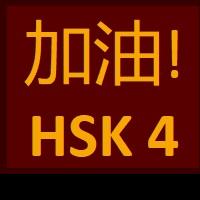HSK4 07-05
HSK level 1
HSK4 07-05
HSK4 07-05
HSK4 07-05
HSK4 07-05
HSK4 07-05
HSK4 07-05
HSK4 07-05
HSK4 07-05
HSK4 07-05
HSK4 07-05
HSK4 07-05
HSK4 07-05
我 听 一位 医生 说 过 一句 话 :“ 最好 的 医生 是 自己 , 最好 的 药 是 时间 , 最好 的 运动 是 散步 。
||un||||||||||||||||||||
|heard|a doctor|doctor||past tense marker|a sentence|saying||||||||medicine||time|||walking||walking
|||||||||||||||薬|||||||
|ouvir|um|médico|||uma|fala|melhor||médico|||||remédio||tempo|||exercício||caminhada
||||||egy mondat||||||||||||||||séta
I heard a doctor say: "The best doctor is yourself, the best medicine is time, and the best exercise is walking.
Oí decir a un médico: "El mejor médico eres tú mismo, la mejor medicina es el tiempo y el mejor ejercicio es caminar".
J'ai entendu un médecin dire : "Le meilleur médecin, c'est soi-même, le meilleur médicament, c'est le temps, et le meilleur exercice, c'est la marche".
Hallottam egy orvostól, aki azt mondta: "A legjobb orvos te magad vagy, a legjobb gyógyszer az idő, a legjobb testmozgás pedig a séta.
” 前 两条 我 理解 得 不 深 , 最后 一条 我 完全 同意 。
|deux points|||||profondément||une règle||complètement|tout à fait
before|two||understand|that||deep|the last one|one||completely|agree
primeira|duas||entender|||profundo|última|uma||completamente|concordo
||||||||||teljesen|Teljesen egyetértek
|前の2つ||||||||||同意
|las dos||||||||||
"I don't understand the first two, and I completely agree with the last one.
"No entiendo muy bien los dos primeros puntos, pero estoy totalmente de acuerdo con el último.
"Je ne comprends pas très bien les deux premiers points, mais je suis tout à fait d'accord avec le dernier.
Az első két pontot nem igazán értem, az utolsóval teljesen egyetértek.
前の二つの条項については深く理解できていませんが、最後の一つには完全に同意します。
散步 是 生活 中 最 简单 得 锻炼 方法 , 既 可以 活动 身体 , 又 可以 减肥 , 而且 不会 像 跑步 那样 辛苦 。
|||||||exercice physique|méthode|à la fois||||||perdre du poids|||||de cette façon|pénible
walking|is|life|||easiest||exercise|exercise method|can|can|exercise|body|also||lose weight|and|won't|like|running|that way|tiring
||vida|||simples||exercício|método|tanto||ativar||||perder peso||||corrida||difícil
||||||||módszer|is/also||||||fogyás||||futás||fárasztó
|||||||||また||||||ダイエット||||||
|||||||||||||||||||||difícil
The easiest way to exercise in life during walking is to move the body and lose weight, and it will not be as hard as running.
Caminar es la forma más fácil de hacer ejercicio en la vida, ya que puede mover el cuerpo y perder peso, y no es tan duro como correr.
La marche est le moyen le plus facile de faire de l'exercice dans la vie, car elle permet de bouger le corps et de perdre du poids, et elle n'est pas aussi difficile que la course à pied.
Sétálni az élet legkönnyebb edzésformája, amely segít mozgatni a testet, fogyni, és nem olyan fárasztó, mint a futás.
散歩は生活の中で最も簡単な運動方法で、体を動かすことができ、ダイエットにもなり、ランニングのように苦しくありません。
晚饭 后 , 一家人 一起 出去 散散步 , 是 一件 很 幸福 得 事情 。
||una familia|||||||||
dîner|||||||||heureux||
dinner||a family||go out|take a walk||a very happy thing|very|happy thing||thing
||家族||外出|||||||
jantar||uma família|juntos|sair|dar uma caminhada||uma coisa||feliz||coisa
After dinner, it was a very happy thing for the family to go for a walk together.
Es una bendición para toda la familia salir a pasear después de cenar.
C'est une bénédiction pour toute la famille de sortir se promener après le dîner.
Vacsora után együtt sétálni a családdal nagyon boldog dolog.
夕飯の後に家族みんなで散歩に出かけることは、とても幸せなことです。
肚子 吃饱 了 需要 活动 , 家人 忙 了 一天 需要 交流 , 夫妻 说 说 一天 的 工作 能 加深 感情 ,听 孩子 谈谈 学校 里 有 意思 的 事, 一天 的 烦恼 就 都 跑掉 了 。
ventre||||||||||communiquer|couple|discuter|||||peut|approfondir|sentiments|||discuter de|||||||||soucis|||s'envolent|
belly|full|past tense marker|need|activity|family|busy|past tense marker|a day|needs|communication|couple|||day||||deepen|emotions|listen|the child|talk|school|||interesting||things|a day|possessive particle|worries|then||run away|
barriga|está cheio|||atividade|||||precisa|se comunicar|casal|||||||aprofundar||||conversar||||interessante|||||preocupações|||corrido|
|||||||||||házaspár|||||||elmélyíti|érzelmeket|||beszéljenek|||||||||gondok|||elszállnak|
|お腹いっぱい||||||||||夫婦|||||||深める||||話す|||||||||悩み|||消える|
||||||||||||||||||profundizar la relación||||hablar sobre|||||||||preocupaciones|||se van|
A full stomach requires activities. The family is busy for a day and needs to communicate. The couple talks about a day's work to deepen their feelings. Listening to the children talking about the interesting things in school, the day's troubles are all gone.
Cuando el estómago está lleno, necesita moverse; cuando la familia necesita comunicarse entre sí después de un día ajetreado; cuando las parejas hablan de su trabajo del día, pueden profundizar en su relación; cuando escuchan a sus hijos hablar de cosas interesantes en el colegio, las preocupaciones del día desaparecen.
Lorsque l'estomac est plein, il a besoin de bouger ; lorsque la famille a besoin de communiquer après une journée bien remplie ; lorsque les couples parlent de leur travail de la journée, ils peuvent approfondir leur relation ; lorsqu'ils écoutent leurs enfants parler de choses intéressantes à l'école, les soucis de la journée s'envolent.
Amikor a gyomor tele van, mozogni kell; amikor a családnak szüksége van arra, hogy egy fárasztó nap után kommunikáljon egymással; amikor a párok megbeszélik a napi munkájukat, elmélyíthetik kapcsolatukat; amikor meghallgatják a gyermekeiket, amint érdekes dolgokról beszélnek az iskolában, a napi gondok mind elszállnak.
お腹がいっぱいになったら、活動が必要です。家族は一日中忙しかったので、交流する必要があります。夫婦が一日の仕事について話すことで、感情が深まります。子供が学校での面白いことを話すのを聞くと、一日の悩みがすっかり消えてしまいます。
既 , 减肥 , 辛苦 , 肚子 , 感情 , 烦恼 , 掉
Déjà|Perdre du poids|Difficile|ventre|Sentiments|Tracas|perdre
already|weight loss|hard|belly|emotions|worries|fall
||||emoción|preocupaciones|
já|perder peso|trabalho duro|barriga|emoção|preocupação|perder
||||||落ちる
Both , Weight Loss , Hardship , Tummy , Feelings , Trouble , Dropping
ダイエット、苦労、お腹、感情、悩み、消える

